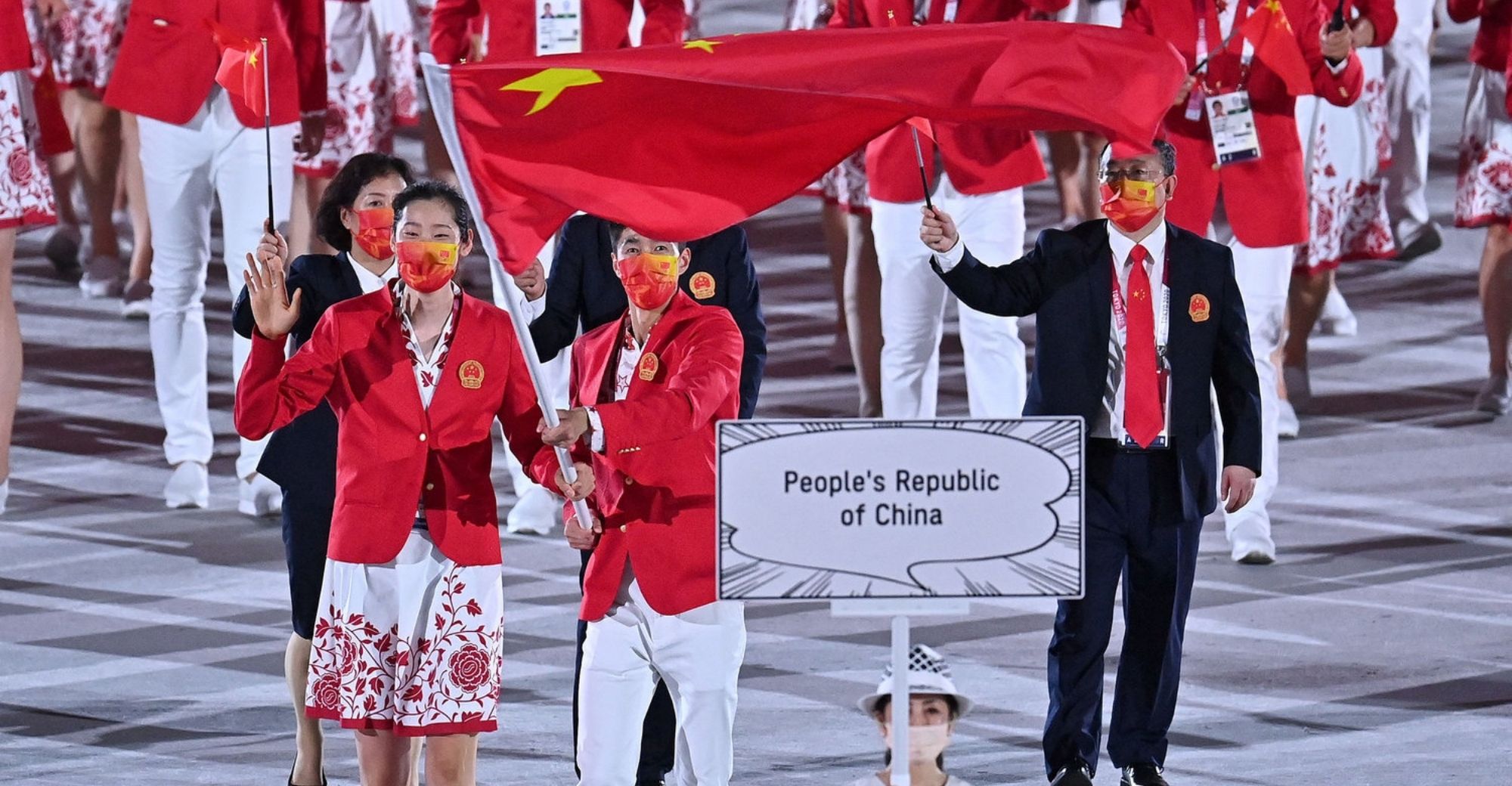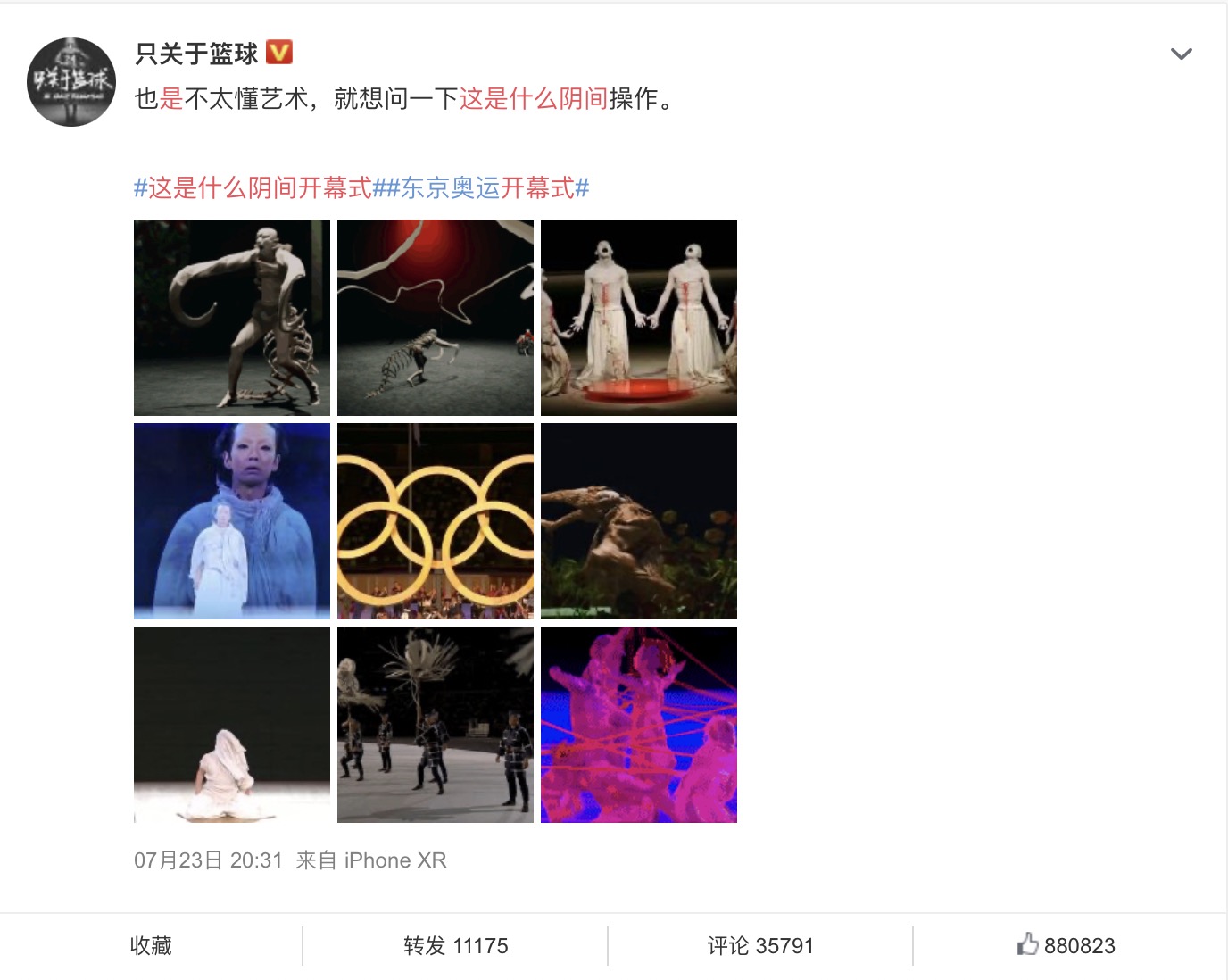
Misinformation Surrounding Tokyo Olympics Goes Viral on Chinese Social Media Amid Rise of "Attention Economy"
Want to read in a language you're more familiar with?
During the Tokyo 2020 Games, China's profit-first self-media industry generated traffic through the sophisticated manipulation of people’s emotions.
With the Olympic flame slowly flickering out and the phrase “arigato” displayed on the LED screens in the Japan National Stadium on Sunday night, the curtain formally descended on one of history’s most unusual Games. After scrambling along a rocky path filled with controversy and an unprecedented year-long postponement, the Tokyo 2020 Olympics took place on a special mission to become, as the International Olympic Committee President Thomas Bach said, “the light at the end of this dark tunnel the whole world is going through.”
In the shadow of the pandemic, the opening ceremony of the world’s largest sporting event unfolded in a subdued, muted fashion at the almost spectatorless stadium on July 23. Following a stark performance given by a single dancer wearing white and ghostly makeup on a darkened stage, a moment of silence was called to pay tribute to those who have lost their lives to the coronavirus. With more than 1,800 drones forming a stunning revolving globe in the sky, a group of musicians sang John Lennon’s 1971 classic “Imagine," evoking a scene of global unity.
However, the ceremony’s message of mourning and togetherness was not warmly received on Chinese social media. A hashtag reading “What the hell is this spooky opening ceremony” has so far been reviewed 780 million times and inspired more than 193,000 posts on China’s Twitter-like platform Weibo. Under the hashtag, some Big V’s – influential Weibo users with verified accounts – posted performance clips featuring actors dressed in skeleton-like costumes and mocking the “weirdness” of the show, amassing hundreds of thousands of likes and comments from netizens.

“If there were no commentators, I would think I was watching the funeral of Japan’s emperor,” read one comment.
“The opening ceremony has showcased what Japan’s folk culture looks like after the Fukushima nuclear disaster and the COVID-19 pandemic,” another commenter replied sarcastically.
But some sharp-eyed web users spotted that many of these widely circulated clips were not actually from the Tokyo Olympics opening ceremony. China Fact Check, a Shanghai-based fact-checking initiative launched in 2020 with the aim of tackling false information about international affairs on Chinese social media, pointed out in an article published on July 24 that some of the viral clips actually were sourced from the “Wassai” festival, an event held on July 18 as part of the official cultural program of the Tokyo 2020 Games. The fact-checking site said that it used Google’s reverse image search tool and sifted through the live-streaming archive on YouTube to cross-check these clips.
In recent years, the Chinese Internet has seen an alarming surge in fake news spurred by bloggers’ freewheeling competition for eyeballs. For many content creators in China, blogging is a profitable business, with followers sending donations and brands paying for endorsements of their products. Dubbed “self-media," these social media accounts run by independent writers represent an increasingly popular channel to receive information for the country’s 1 billion netizens. The combination of a quest for traffic and a lack of journalistic ethics has prompted millions of self-media operators to use clickbaity headlines and produce content deliberately catering to domestic public opinion, sometimes at the expense of accuracy.
During the Tokyo 2020 Games, the profit-first self-media industry generated traffic through the sophisticated manipulation of people’s emotions, exploiting the Chinese public’s complicated feelings about the Olympic host country, which reach back to the historical scars left by Japan’s World War II-era atrocities in China. Their controversial approaches involve combining fact and fiction, presenting out-of-context information, and making them up into sensational stories.
Celebrity gossip blogger “Huihuo”, who boasts more than 8 million followers on Weibo, published a post on July 27, stating that multiple Olympic triathletes vomited after finishing the grueling men’s event which was held on July 26. “It may be linked to the excessive levels of Escherichia coli in the water,” the blogger claimed, attaching screenshots of athletes swimming in Tokyo Bay and news articles regarding the water quality of the sea.

According to reports by The Independent and South China Morning Post, many racers including Kristian Blummenfelt, who won the gold in the event, vomited after finishing the three-pronged event which features a 1.5-kilometer swim, a 40-kilometer cycle and a 10-kilometer run. But there was no evidence that Tokyo Bay’s water caused the vomitting. Chinese female triathlete Zhong Mengying, who participated in the women’s Olympic triathlon on July 27, said in a Weibo post that she didn’t notice any foul smells while swimming in the bay, adding that organizers had analyzed water samples to ensure that they met safety standards before the event. “I think heat, humidity and high-intensity of the game helped cause the male athletes to vomit," read Zhong’s statement.
However, blogger Huihuo’s post has already sparked outrage among Chinese netizens, with more than 600,000 Weibo users giving it a thumbs-up and 16,100 leaving a comment.
“It is the worst Olympics Games ever,” a Weibo user said.
“It suddenly occurred to me that the Japanese government just approved the release of one million tons of wastewater from the Fukushima nuclear plant into the sea….,” another commentator quipped.
The lure of Internet traffic is so irresistible that some bloggers started spreading rumors about Japanese athletes, which has spawned massive online abuse against these Olympians.
For the first time since 2004, a country other than China has won gold in an Olympic table tennis event. On July 26, Japan’s duo of Jun Mizutani and Mima Ito defeated Chinese pair Xu Xin and Liu Shiwen 4-3 in the mixed doubles final.

After the event, the hashtag “Parenting styles of Mima Ito’s mother” was created and began trending on Weibo, and has so far gathered more than 110 million reviews and inspired over 150,000 discussions. Several Big V bloggers posted a videoclip of Ito’s mother telling Japanese media that she had whispered in Ito’s ear since she was a little child, “only you can beat China.”
“It is a replica of Japanese militarism. Ito’s mother is brainwashing her and inculcating nationalist enmity towards China into her,” one Weibo user commented.
“Mima Ito is consumed with hatred while playing ping-pong,” another netizen said.
Meanwhile, state-owned China Central Television published an article regarding Ito’s friendship with China’s table tennis player Sun Yingsha, reporting that Ito previously shared the rice balls her mother made with other Chinese athletes in an attempt to combat the incomplete and binary narrative constructed by the online self-media industry. However, a storm of hate speech has already swept the Japanese athlete’s Instagram account, with vulgar swear words such as “dogfucker” and “little Japan” flooding the comment section under the 20-year-old table tennis player’s selfies.
Ito’s partner Jun Mizutani has also become a target of cyberbullying after scoring the gold medal. In a now-deleted tweet, Mizutani wrote that he had received numerous direct messages on Twitter telling him to “drop dead," Reuters reported.
On Weibo, many netizens accused Mizutani of violating the rules by breathing on the ball during the match. Hashtag “Jun Mizutani blew on the ball” has been viewed more than 850 million times, with some users saying the Japanese players should not have won. According to BBC, the International Table Tennis Federation (ITTF) advised athletes not to engage in "hand-wiping on the table" and "breathing on the ball for tackiness" due to the COVID-19 risks. The ITTF told BBC that Mizutani's blowing did not violate Covid guidelines because his mouth was not close enough to the ball.
The 32-year-old paddler on July 31 posted a video of a long, abusive direct message sent to him from an anonymous account on Twitter. “I’ll contact all parties concerned to take necessary measures,” Mizutani said. “If I leave all the online abuse I’m receiving as is, the target will be shifted to other athletes, so I feel that I need to deal with it now properly.”





